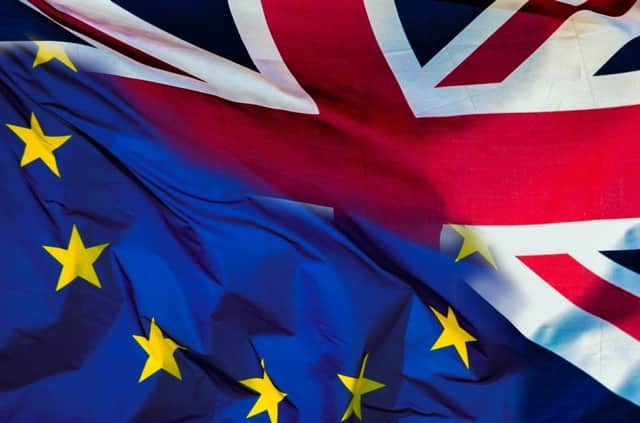Jamie Watt: Brexit-proof your business


If foreign markets are important to your business, so too will be moving goods across borders quickly and simply. Authorised Economic Operator (AEO) status already helps in this respect, simplifying and quickening customs formalities, and it’s likely to be useful whatever type of Brexit the UK ends up with. However, AEO status currently takes time to acquire. Businesses should consider whether it might be useful to apply for it now.
IP rights, particularly brands, are hugely important in both the EU and non-EU marketplaces. While it is hoped European trademarks will continue to apply in the UK, it is not yet certain and there is a risk that in the midst of complex negotiations and legislative measures, this point may not be dealt with in time. Applying for a UK registration to sit alongside your EU trademark is a simple, low-cost measure. It may make sense to address this point presently, so you can then focus on dealing with more complex and time-consuming matters, such as ensuring your products can still travel in a “frictionless” manner as possible across EU borders.
Advertisement
Hide AdAdvertisement
Hide AdShould you think about an EU office? It looks increasingly likely that some sectors may require a local EU presence to continue trade within the EU, post-Brexit. These sectors include financial services, pharmaceuticals and medical devices, along with (pursuant to the GDPR) any businesses who control and process personal data relating to EU citizens, who will require an EU representative.
The formation of an EU-based entity is relatively simple, but is likely to have wider consequences as regards tax and practicalities such as staffing. It is worth researching what the consequences are for your business at this time, so that if these requirements crystalise, possibly at a date very close to the UK’s departure, you know what to do.
Don’t forget, local presence requirements might be dictated by supply chains. Moving product across the UK/EU border may become inefficient, for example in the context of multi-level production and distribution arrangements. It may be sensible to start considering whether EU warehousing may be useful.
As regards the supply chain, it’s essential to run over your contracts and know your risk. It’s possible some form of tariffs or duties will apply in respect of UK/EU trade. Irrespective of Brexit, it’s also likely tariffs will creep back in other sectors of world trade, for example as a consequence of the US’s proposed aggressive protectionism.
Supply chains are now increasingly global and sudden or aggressive tariff changes can tip what may have been profitable into loss-making territory and cause pressures on pricing.
So the key question is, what do your contracts allow for as regards exit rights and pricing change? Will your source of supply become more costly, or even disappear, and if this happens what backup do you have?
When one considers supply, one should consider not just raw materials but also labour supply. One of the main stimulating factors in the Brexit vote was immigration, and access to our labour markets by EU migrants. If you rely on EU labour, and access is restricted by law or even just general societal change, what will you do?
Also, are you reliant in any way upon the supply of EU funding, for example under the Horizon 2020 programme. EU funding has traditionally been very kind to Scotland, and this is an area which will be significantly affected. It will pay to be ready as regards your contracts.
Advertisement
Hide AdAdvertisement
Hide AdLastly, ensure you have access to experienced, cost-effective commercial advice and assistance – legal, tax, accountancy, freight services, any services crucial to your business. Brexit is coming. It’s likely things won’t be properly stable for some time. Be prepared. Find that agile strength.
Jamie Watt is a Partner at Harper Macleod